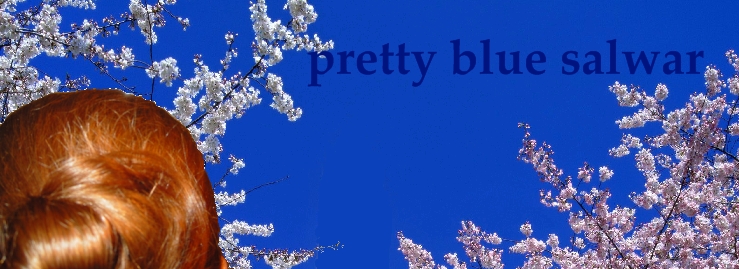(Editor's Note: She's posted this one, then pulled it, then posted it, then pulled it again. She's not sure. She never is, on issues like these, because she knows she can't ever truly understand anything from "the other point of view."
But she's posting it again, anyway, because she thinks her point about American accents not being considered accents is valid, and she'll trust her readers and commenters to straighten her out on the rest of it.)
Hmmm. I read this editorial in the NYT today and thought it was about time I weighed in on the... um... "name thing."
The editorial tells the story of a Hispanic author's experiences with his own name, Manuel Munoz, and his observations that there are two ways of pronouncing it -- the Mexican way and the English way. He notes that he and many of his Hispanic friends and relatives allow their names to be pronounced in the English way for "convenience" and to allow them to "blend in:"
Ours, then, were names that stood as barriers to a complete embrace of an American identity, simply because their pronunciations required a slip into Spanish, the otherness that assimilation was supposed to erase.I won't argue his experience. Munoz goes on to write about how having an easily-pronounced name increases "access" (in the lit theory sense as well as the literal one) in America. It's overwhelmingly present; there is still discrimination against people whose names sound too "foreign."
(As I've noted before, people today are extra-aware that names are everything.)
But there is another side to this story.
It has to do with Munoz' failure to identify the native-born American accent as an accent, with all the quirks and limitations thereof.
He writes as if it were merely a matter of choice that American speakers (read: white) pronounce his name "Man-WELL" without the elisions that a Spanish speaker would use.
This troubles me, because it speaks to a generality: that the "American accent" is, in this country and increasingly worldwide, viewed as a "default." Think of the dialect coaches in India, working to give call center employees default/blank/all-purpose-American accents.
If this "American accent" (never mind the varieties of speech patterns among Americans) is viewed as default, a few other assumptions begin to tag alongside.
The first is the assumption that people with American accents have the ability to say any phoneme they like, or to slip into any other accent unhindered. (After all, the American accent isn't an accent; it's the opposite of an accent: a blank slate.)
The second is that people with American accents have the ability to hear the difference between the way they pronounce a particular name and the way it is pronounced by the original speaker. (Trust me: when we refer to "Dr. Gooooopta," we really think we're getting it right.)
The third, of course, is that all non-American accents are viewed as variant, deviant, of less value, etc.
I'm not sure what the solutions will be to any of these problems. It will be interesting to see how accents change in the next hundred years; whether the "American" accent is allowed to dominate, or whether it becomes tucked alongside a multiplicity of accents and is no longer a "default." Globalism could take us either way.
But -- at the current moment -- to Mr. Muniz and to everyone who's had a name butchered: Some of us, including me, can't always say the words we'd like to say. Forgive us our flat vowels.



2 comments:
So, I read his article. I'm not sure where your commentary is coming from. He's saying that names are associated with various ideas: shame, pride, assimilation, heritage, personality, etc.
I'm not too sure where the lack of referencing an American accent as an accent comes in.
I don't think he was blaming Americans; rather, I think he was saying what he felt when he heard his name mispronounced or pronounced correctly.
It must be very interesting growing up having so much attached to your name. I can't really relate, as my family assimilated a few generations back. I wonder, though, what it's like for other oppressed and not-so-oppressed minorities. Do the Lakeshas of this country feel the same way? What about the Sun Lis? The Roshnis? Is it just those with Hispanic sounding names?
You're right. It isn't in the article, not exactly. It's something else, I think -- something in the "web of meaning" around the article (gack, that sounds pretentious, and it's my way of saying that I'm not sure exactly why I reacted the way I did).
I can't relate either, not to the feeling of having two disparate identities for two pronunciations, or for the need to swallow the "real" one to advance in society.
Hmmm. I may have just gone in the wrong direction on this one.
Post a Comment